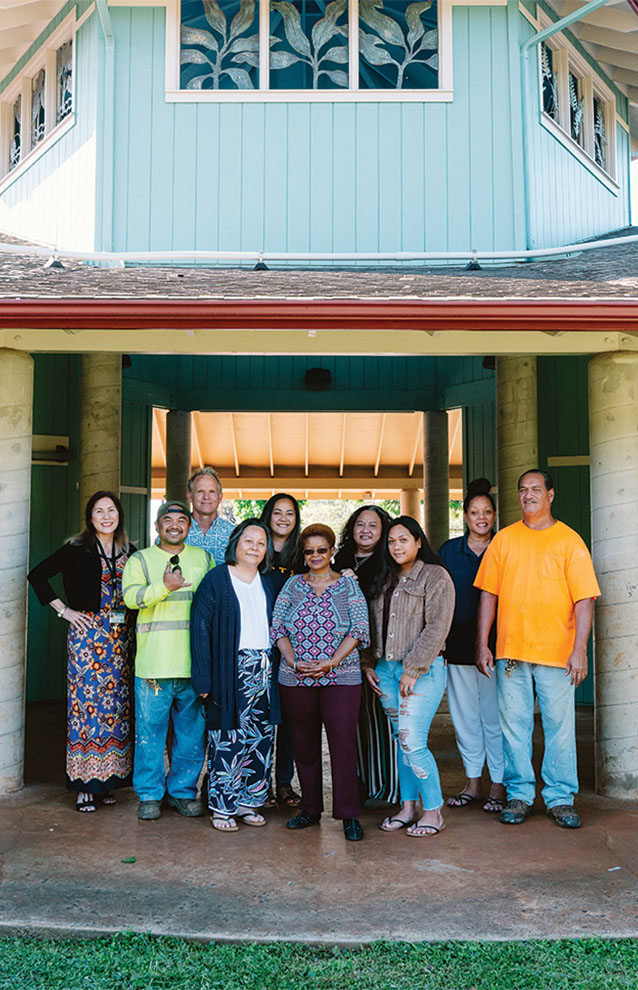 Not far off the highway along Oahu's Leeward shore, a drive past open fields leads to a compound. A farmhouse? Store? Restaurant? Some kind of residential hall or school? Set amid shade trees and rows of crops, Kahumana Community is all of those and more.
Not far off the highway along Oahu's Leeward shore, a drive past open fields leads to a compound. A farmhouse? Store? Restaurant? Some kind of residential hall or school? Set amid shade trees and rows of crops, Kahumana Community is all of those and more.
While the artsy, hand-painted signage might evoke a 1970s hippie-commune aesthetic, Kahumana is anything but: It's a down-to-earth collective on a mission. The farm and its on-site cafe employ people who've suffered homelessness, disability and other challenges to learn occupational skills. Proceeds from the farm's operations support housing for the unhoused and care for the developmentally disabled. Kahumana is a holistic system that not only grows and puts food on tables but also puts houses on lots, families in homes and paychecks in pockets of the people growing that food.
"One of our goals is ending family homelessness, especially for families with minor children," says Tom McDonald, executive director of Alternative Structures International, the nonprofit overseeing Kahumana's various operations. "In any one year, we're providing services to well over a thousand people, including the homeless, people with disabilities and people who come to our food programs."
Kahumana's Farm Hub grows organic fruits and vegetables using sustainable techniques on thirty-one acres in Lualualei Valley. That produce goes to the cafe as well as to local restaurants, farmers markets and a commercial kitchen, which provides about five hundred boxes of produce a week to needy families on Oahu. Kahumana's Adult Day Health operation (located at the farm and also in Kailua, on the Windward side) provides activities and learning opportunities- social and life skills, arts and crafts, cooking-for people with autism and other developmental disabilities. Kahumana Housing builds homes and provides transitional housing as well as emergency shelter. "We focus on a 'housing first' model," says McDonald. "You don't require people to get better first. Instead you house first and then do the case management to help them through their issues."
What are the keys to success for an operation focused on helping the less fortunate? "A deep sense of respect and empathy is essential," says McDonald. "Our goal is to help them feel like equal partners in society so they can work, play and be fully welcome and integrated."
Serving farm-fresh salads, delicious curries and ice-cold kombucha in the cafe doesn't hurt, either.
kahumana.orgOpens external link to page that may not meet accessibility guidelines


